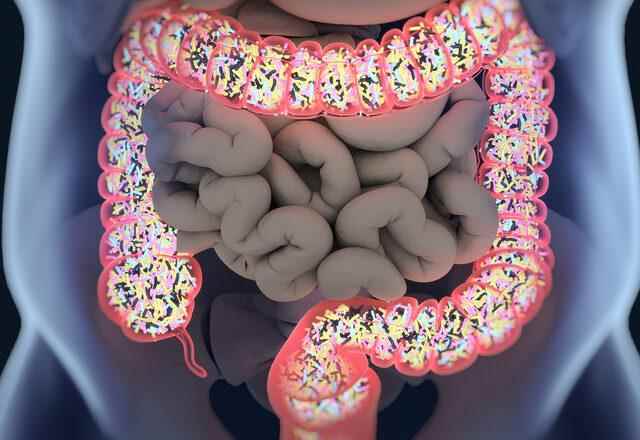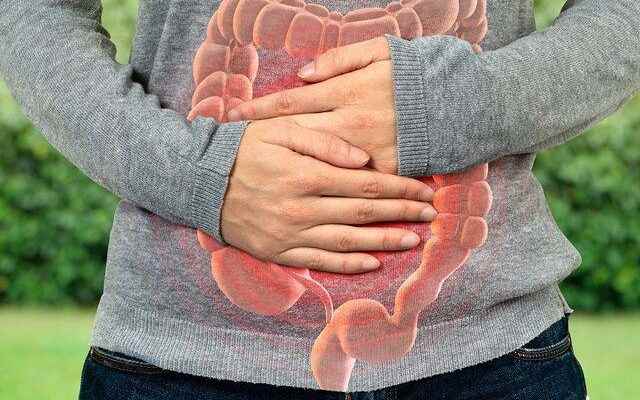Colon cancer, popularly known as bowel cancer, is among the top three most common types of cancer in our country. There are many factors that cause colon cancer. Among these factors, an unhealthy diet is at the top. As in every disease, early diagnosis in colon cancer saves lives by increasing the success rate of treatment. Colon cancer, which is usually seen after the age of 50, shows different symptoms according to people. Knowing these symptoms and having a regular colonoscopy are important for early detection of colon cancer.
A PREVENTABLE DISEASE WHEN DIAGNOSED AS A POLYP
General Surgery Specialist Assoc. Dr. Murat Urkan, emphasizing that colon cancer progresses “insidiously” without any symptoms in the early period, stated that according to the statistics of the Ministry of Health, large intestine (colon) cancer is among the top 3 most common cancer types in our country. “Patients come to us late, as they show signs in the later stages. However, it is a disease that can be prevented when it is diagnosed as a polyp,” said Assoc. Dr. Although there is a risk at any age, Urkan recommended screening colonoscopy to patients over the age of 50, where the disease is most common, and especially to patients in the risk group.
MOST COMMON SYMPTOMS EXCUTTING PROBLEMS
Assoc. Dr. Urkan explains the main symptoms of the disease: “Despite defecating, they feel that their intestines are not fully emptied. Diarrhea or constipation may occur. In these patients, blood in the stool, a transparent secretion, active bleeding can be seen. There is also a feeling of pain during defecation. In addition, abdominal pain and a feeling of swelling are among the symptoms.
COLONOSCOPY IS NOT A POSSIBLE PROCEDURE

Underlining that colon cancer is in the cancer class included in screening programs, Assoc. Dr. Urkan stated that the most effective tool for early diagnosis is regular use. Providing information about the colonoscopy procedure, Assoc. Dr. Urkan said, “It is definitely not a painful or troublesome process. New colonoscopes can be applied very easily and desired results can be obtained without causing discomfort to the patient. In addition, the colonoscopy procedure has become more comfortable with the help of anesthesia. Colonoscopy is a procedure that can both detect an existing tumor at an early stage and detect polyps and similar problems that may lead to cancer before they become cancerous, and protect the person from the development of cancer. Assoc. Dr. Urkan recommended colonoscopic examination at regular intervals (2-5 years) according to the risk status, family history and personal health history of each individual over the age of 50 and said that the five-year survival rate is “90%” among those diagnosed and treated at an early stage.
YOU SHOULD STAY AWAY FROM FOODS LIKE SALAMI SAUSAGE

Although it is known that there are many factors at the root of the disease, Assoc. Dr. Urkan said, “It is well known that a fiber-poor diet invites this disease. Especially since the limited consumption of vegetables and fruits negatively affects our digestive system, we should not neglect to consume enough vegetables and fruits on a regular basis every day. Another issue to be considered; excessive fatty foods, animal fat consumption and red meat-based diet. Keeping this type of diet at the forefront invites colon cancer. Excessive consumption of foods such as salami, sausage, sausage and bacon, especially processed and containing additives, also invites the disease. Underlining that it is necessary to stay away from smoking and alcohol as much as possible, pay attention to weight, calcium and vitamin D, and do regular sports, Assoc. Dr. Urkan said that with this diet regimen, the risk will be significantly reduced even if it is not reset.
COLON WORKS AS A STORAGE BEFORE EXCEATING

Assoc. Dr. Urkan explained the relationship between constipation or hemorrhoids and colon cancer as follows: “The colon acts as a depot for a while before defecation. In case of constipation, which expresses the prolongation of this period, stool retention time in the large intestine and the volume of the large intestine increase. In these two situations, especially the increase in volume for a long time causes wear and tear. In addition, the toxic properties of feces, which are kept in the body for a long time, lead to putrefaction and fermentation. This, in turn, contributes to the formation of cancer in the large intestine.” Assoc. Dr. Urkan stated that while hemorrhoids cause complaints such as pain and bleeding during defecation, it can hide the disease and cause late diagnosis.
COLON CANCER TREATMENT IS REALIZED BY THE OPINION OF MANY DOCTORS

Mentioning that the treatment is a detailed process, Assoc. Dr. Urkan said, “Large bowel cancers differ due to location, stage at diagnosis, general condition of the patient and many similar factors. The treatment of any large bowel cancer patient is no longer planned with the opinion of a single physician. In other words, the decision about the treatment method and order is taken by talking in the councils where more than one branch, which we call multidisciplinary, is involved. While surgical intervention may be the priority for some patients, chemotherapy or radiotherapy comes to the fore in some of our patients. Assoc. Dr. Urkan emphasized that there is no stereotyped treatment protocol and said, “We know that it is best to make a patient-based decision. That’s why we decide and apply our patients with a multidisciplinary approach by talking about the patient and treatment methods with different specialists.
